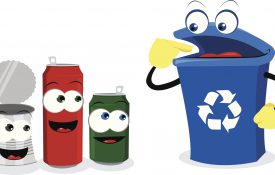
Research is the first to demonstrate that awe-eliciting art can spark prosociality in children as young as 8 years old, motivating them to set aside their own concerns to focus on others. Awe also has physical benefits for children.

The happiness we feel after a particular event diminishes each time we experience it, but giving to others may be the exception to the rule.

People are much more likely to decide to donate a kidney to a stranger -- an extraordinarily altruistic act -- in areas of the United States where levels of well-being are high, researchers find.

We’re often told to ‘count our blessings’ and be grateful for what we have. Research suggests that thinking about what we’ve given, rather than what we’ve received, can lead us to be more helpful toward others.

Research shows that donors are more generous when they’re asked to give a hypothetical amount to one person before deciding how much to actually donate to a group of needy people.

People who receive a financial incentive to raise money for a charity they care about are actually less effective in soliciting donations, even when potential donors have no idea that incentives were involved.

Gift givers often make critical errors in gift selection during the holiday season, focusing on the moment of exchange instead of the long-term utility or practical attributes of the gift.

With so many holidays and celebrations, who can blame someone for doing a little recycling, or as it is commonly known, regifting? Not the person who actually gave the original gift, despite what a regifter may think.

Whether you’re buying a home or squirreling away a nest egg for retirement, financial decisions are all about the numbers – except for when it comes to charitable giving.

Children as young as 4 years old may reap better health from altruistic giving, a behavior that tends to be less common among kids from high-income families.

A boost to income can increase happiness to a certain degree, but research suggests how you spend your money may be equally important as the amount you have.

Gift givers tend to focus on the “big reveal,” choosing the gift that will surprise and delight the recipient in the moment over the one that will bring long-term satisfaction.

A series of studies show that people tend to reciprocate others’ actions in ways that increase disparities in wealth.

Companies often put a personal face on products to connect with consumers. The same idea may also work for social causes, like recycling and energy conservation, according to a series of studies.

People pay more attention to the number of people killed in a natural disaster than to the number of survivors when deciding how much money to donate to disaster relief efforts, according to new research
